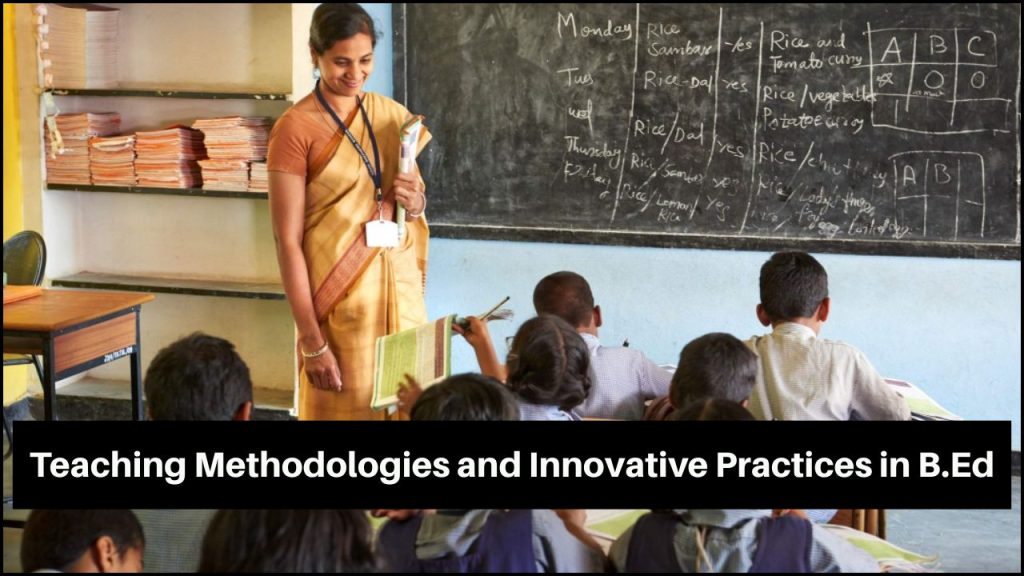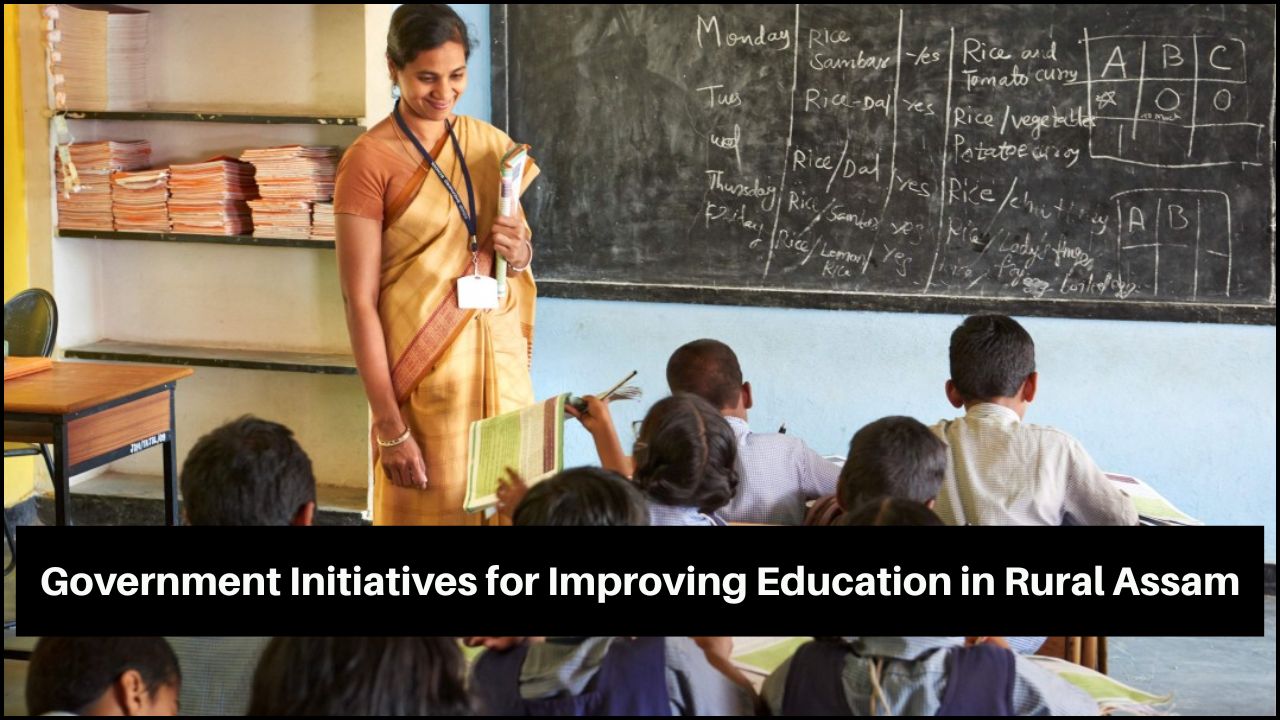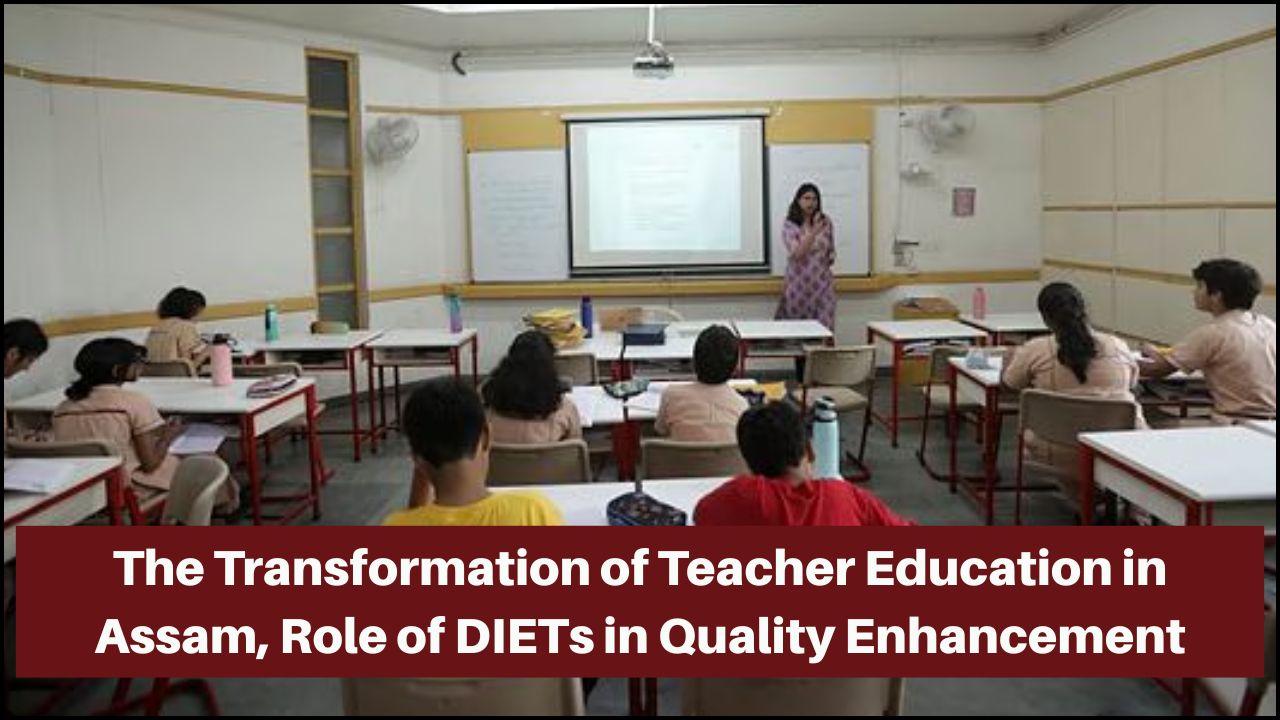
Teacher education programs play a critical role in shaping the future of the education system. The Bachelor of Education (B.Ed) program equips aspiring teachers with professional skills, knowledge, and teaching practices. Teaching methodologies and innovative practices form the core of this training.
These components not only prepare student-teachers to handle classrooms but also encourage creativity, critical thinking, and learner-centric approaches. A strong focus on modern techniques helps future educators adapt to the evolving needs of students in diverse classroom environments.
Table of Contents
Traditional Teaching Methodologies in B.Ed
Lecture Method
- Purpose: Delivers factual and theoretical content
- Usefulness: Effective for large classrooms
- Limitations: Lacks interaction and learner engagement
Demonstration Method
- Purpose: Shows a concept through a practical display
- Usefulness: Suitable for science, art, and physical education
- Limitations: Time-consuming and equipment-dependent
Discussion Method
- Purpose: Encourages classroom interaction
- Usefulness: Builds confidence and communication skills
- Limitations: Can become unfocused without proper control
Heuristic Method
- Purpose: Promotes problem-solving and investigation
- Usefulness: Increases learner independence
- Limitations: Requires proper guidance and planning
Modern Teaching Methodologies in B.Ed
Constructivist Approach
- Focus: Learners build knowledge through experiences
- Implementation: Group projects, field visits, and inquiry-based learning
- Outcome: Enhances critical thinking and creativity
Collaborative Learning
- Focus: Peer interaction and teamwork
- Implementation: Pair or group assignments, team discussions
- Outcome: Improves communication and social skills
Flipped Classroom
- Focus: Learning content at home, practice in class
- Implementation: Video lectures, online materials before class
- Outcome: Maximizes classroom interaction
Blended Learning
- Focus: Mixes online and face-to-face teaching
- Implementation: Learning Management Systems (LMS), webinars
- Outcome: Offers flexibility and personalized learning
Innovative Practices Adopted in B.Ed
| Practice | Description | Benefits |
|---|---|---|
| Micro-teaching | Simulated teaching in a controlled setting | Builds teaching confidence and refines techniques |
| Reflective Journals | Students write daily or weekly reflections on teaching experience | Encourages self-evaluation and continuous improvement |
| Peer Teaching | Trainees teach each other under supervision | Boosts mutual learning and feedback culture |
| Digital Portfolios | Online collection of lesson plans, activities, and reflections | Showcases progress and creativity |
| Thematic Assemblies | Planned sessions on educational or social themes | Enhances planning and organizational skills |
| ICT Integration | Use of digital tools in lesson planning and delivery | Develops digital fluency and engagement |
| Simulated Classrooms | Virtual classroom scenarios for practice | Prepares for real-life challenges |
| Action Research Projects | Short research conducted by trainees on educational issues | Promotes analytical skills and practical solutions |
| Drama in Education | Use of theatre methods to teach various subjects | Increases expression, empathy, and understanding |
| Storytelling Technique | Students write daily or weekly reflections on their teaching experience | Enhances attention, comprehension, and imagination |
Technological Tools in B.Ed Programs
Smart Boards
- Function: Interactive display screens
- Advantage: Makes content visually appealing and dynamic
Google Classroom
- Function: Virtual learning space
- Advantage: Manages assignments, grades, and communication
Kahoot and Quizizz
- Function: Game-based assessment tools
- Advantage: Engages learners and gives instant feedback
Padlet and Jamboard
- Function: Collaborative online whiteboards
- Advantage: Supports brainstorming and interactive sessions
Trello and Notion
- Function: Project management tools
- Advantage: Helps in organizing tasks and collaborative planning
Internship and Practice Teaching
| Component | Activities Included | Skills Developed |
|---|---|---|
| Classroom Teaching | Planning and executing lessons in real school settings | Lesson planning, classroom management, and communication |
| Observation | Watching experienced teachers and recording observations | Learning professional behavior and techniques |
| Feedback Sessions | Receiving and giving feedback on teaching practices | Reflection, self-correction, and improvement |
| School Activities | Participation in co-curricular events and administrative work | Leadership, time management, and teamwork |
| Lesson Planning | Preparation of lesson plans using various formats | Structuring content, resource selection |
Skill-Based Training
Communication Skills
- Training Focus: Listening, speaking, reading, and writing
- Application: Parent interaction, teaching delivery, report writing
Life Skills Education
- Training Focus: Problem-solving, empathy, resilience
- Application: Student counseling and holistic development
Assessment Techniques
- Training Focus: Formative and summative evaluation
- Application: Designing tests, rubrics, and feedback
Inclusive Education
- Training Focus: Catering to children with diverse needs
- Application: Use of assistive devices, differentiated instruction
Classroom Management
- Training Focus: Handling disruptions, maintaining discipline
- Application: Peaceful and effective learning environment
Workshops and Seminars
| Type | Focus Area | Expected Outcome |
|---|---|---|
| Pedagogy Workshops | Subject-specific strategies | Better lesson design and delivery |
| Technology Seminars | Educational tools and e-learning | Technology integration and resource usage |
| Soft Skill Sessions | Personality development and communication | Professional behavior and interpersonal growth |
| Career Guidance Camps | Teaching careers and advanced study options | Career clarity and planning |
| Research Methodology | Conducting and presenting educational research | Academic rigor and analytical ability |
Innovative Evaluation Practices
Portfolio-Based Assessment
- Method: Collection of student work and reflections
- Benefit: Tracks long-term development
Peer Evaluation
- Method: Trainees assess each other’s work
- Benefit: Builds critical thinking and objectivity
Rubric-Based Assessment
- Method: Predefined performance criteria
- Benefit: Offers transparency and fairness
Self-Assessment
- Method: Learners judge their progress
- Benefit: Encourages responsibility and awareness
Project-Based Evaluation
- Method: Assignments based on practical activities
- Benefit: Promotes creativity and application of concepts
Final Analysis
Teaching methodologies and innovative practices in B.Ed programs have undergone a major shift from traditional instruction to modern, learner-centered strategies. These developments help future teachers become adaptable, creative, and effective educators. A strong focus on practice-based learning, reflective thinking, and technology integration prepares student-teachers to meet the diverse needs of 21st-century classrooms.





